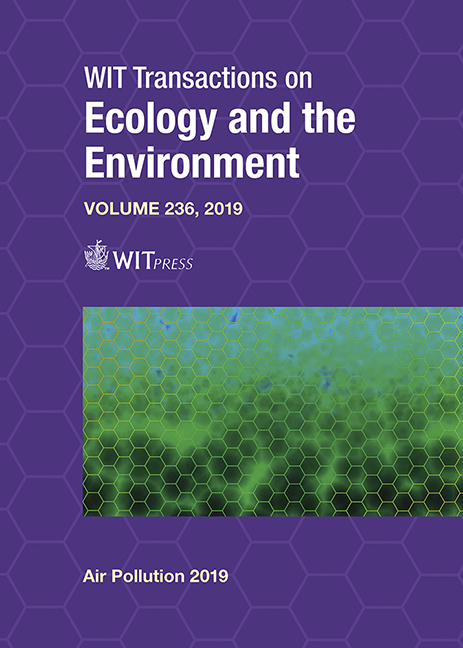AIR QUALITY INDEX AS A TOOL FOR MONITORING ENVIRONMENTAL DEGRADATION AND HEALTH IMPLICATIONS
Price
Free (open access)
Transaction
Volume
236
Pages
11
Page Range
9 - 19
Published
2019
Size
291 kb
Paper DOI
10.2495/AIR190021
Copyright
WIT Press
Author(s)
M. SANMI AWOPETU, J. OLUGBENGA ARIBISALA
Abstract
Considering the importance of air to human existence, air pollution is a critical issue that requires collective effort for its prevention and control. The anthropogenic activities keyed into a crystal responsibility which resulted in environmental dilapidation and ruin. One of the tools that can be used for such a campaign is Air Quality Index (AQI). This study carried out an air quality survey of some air pollutants in Ado-Ekiti, Ekiti State Nigeria with the view to develop the AQI. The AQI was based on the concentrations of four pollutants. The index is calculated from the concentrations of the following pollutants: PM2.5, PM10, CO and SO2. The air quality sample was taking in July 2017 (rainy season) and January 2018 (dry season) for a period of one week in each season. Seven sampling points across two environmental zones in the study area, namely commercial and residential (high-income and low-income areas), were considered, resulting in 42 samples for each of the 4 air pollutants, totaling 392 samples. The results show that the AQI was generally lower during the rainy season than the dry season, and that the AQI in the high-income residential areas was most favorable, ranging from good to unhealthy for sensitive group. The worst scenario was recorded in the commercial environmental zones, which ranged from moderate to hazardous. There is a need for constant and continuous monitoring of air quality for development of AQI, which in turn will enable clear communication of how clean or unhealthy the air in the study area is; it will usher in environmental degradation, dilapidation and will ruin the awareness campaign.
Keywords
air, quality, index, pollution, Ado Ekiti, environmental, degradation, pollutants





